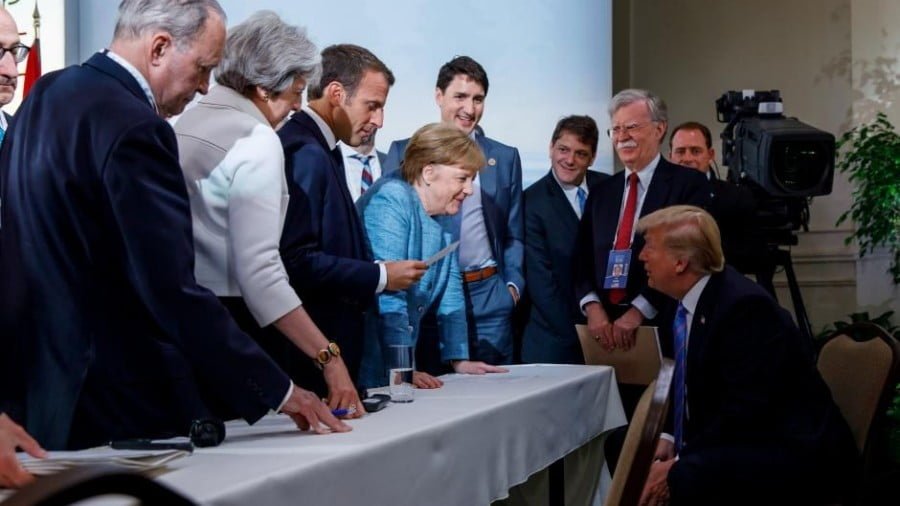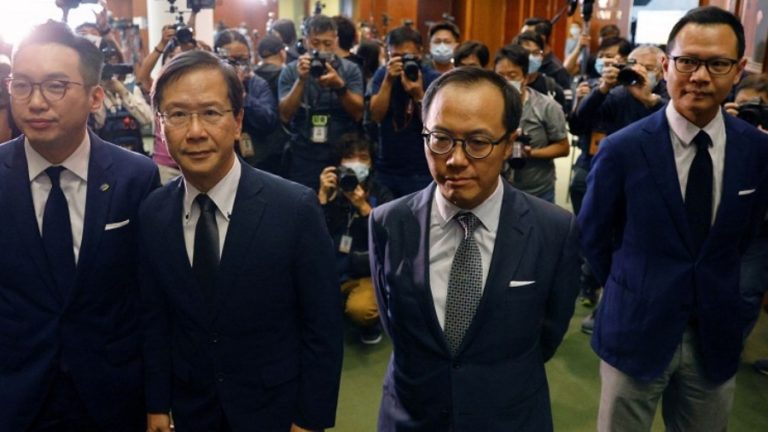The Charge of the Light Brigade – Britain Goes Full Circle on Russophobia
The classic British anti-war film The Charge of the Light Brigade will be fifty years old next year. Who would have thought the crude Russophobia of the 1850s, which Tony Richardson expertly satirized, would be back in vogue half a century later?
The idea history is cyclical and not linear is probably not disproved by looking back to what happened to Britain in the 1850s.
Then, as now, the establishment (and also some of its critics) were promulgating the most ludicrous conspiracy theories about how the ‘barbarian’ Russians posed a threat not just to the British Empire, but to the entire Western civilization.
Then as now, it was all a load of hogwash. The warmongers of the day just wanted an excuse for another scrap, one in which like their neocon counterparts today, they would stay safely out of harm’s way when the cannon balls were fired. For the financial elites, conflict meant excess profits and a nice return on war loans.
Another advantage for the ruling class was that promoting a non-existent Russian threat would take people’s minds off problems closer to home.
The jingoistic spirit of the times was captured brilliantly in Richardson’s magnum opus. What makes The Charge of the Light Brigade such an outstanding piece of film-making is that it combines acted scenes with hand-drawn animated sequences. These were drawn by Richard Williams (whose 1971 version of A Christmas Carol deservedly won an Academy Award), in the style of the cartoons from the famous Punch magazine. Britain is depicted as a lion wearing a policeman’s helmet, the self-appointed world’s policeman (before the US took over the role, with the UK as junior partner).
Meanwhile, the big bad Russian bear is seen plucking ‘Poor Little Turkey.’ “Defend the weak” declare virtue-signaling establishment figures. “The Russians, the Russians, the Russians”! is the cry. Sound familiar?
Anyone who died in 1854 and miraculously came back to life today in Britain wouldn’t believe just how little has changed on the ‘Russians are coming’ front.
Establishment Russophobes now have computers, smartphones and Twitter accounts, but their message is the same as their frock-coated, top-hatted predecessors in the Victorian age. Again we’re meant to be getting into a froth over the Crimea. Again, we’re meant to regard Russia as a threat to ‘our civilized way of life’ – whatever that means. Once more, humanity is imperiled.
https://twitter.com/ArthurStramash/status/931564472573063170
The anti-Russian propaganda of the 1850s, lampooned by Williams and Richardson appears quite unhinged to any sane member of the human race. There was, on one level, method in the madness, as there is in the similarly obsessive elite-peddled Russophobia of today.
It was all done with the aim of building popular support for war. This is shown in Richard Williams’ animation, where ‘humanitarian’ concerns are followed by shrill cries by assorted grotesques of “War, war, war”!
Sections of the left were as guilty as the right.
In fact, one of the biggest Russophobes of the time was one Karl Marx, who peddled the line that Lord Palmerston, described by historian AN Wilson as “one of the most jingoistic of ministers”, was a Russian spy.
Marx had originally rubbished the theory – put around by an eccentric Tory MP called David Urquhart – describing Urquhart as “mad” and an “utter maniac”.
But as his biographer Francis Wheen relates, when Marx began to write for Urquhart’s publications, his tune began to change.
He claimed to have discovered a conspiracy, linking Britain to Russia. The Crimea War against Russia was just a “cunning ploy” by the government to throw the people off the scent. Not Karl’s finest hour I’m sure you’ll agree, but again there are strong parallels with today, with politicians accused without any evidence of being “Kremlin agents” and pursuing policies to the benefit of Russia.
https://twitter.com/SputnikInt/status/928594685093990400
As in 2017, those who opposed ‘bear-baiting’ were denounced as traitors. One of the most shocking scenes in The Charge of the Light Brigade is when the utterly vile Lord Cardigan (played by Trevor Howard) and his horsemen ride into a peaceful anti-war protest.
“For (Tony) Richardson, Britain was a nation easily whipped into war fever. It is quite literally a war fever as no one is too sure why Britain is fighting”, writes Mark Connelly in his essay on the film in the British Film Guide. That’s borne out in another memorable scene when Lord Raglan, (played by John Gielgud), is trying to explain to the military men present why we’re going to war in the Crimea. “Our passage to India is threatened, I should think, wouldn’t you.”
There’s then a cutaway to the face of a man who does not look at all convinced. Raglan continues spouting rubbish “The honor, the reputation, the dignity of England is at stake. If the Turks go down to the tyrant, next up our Solent and at our Queen will come the Russians! –Ships and guns to rip our country into shame!”
“The whole idea is of the blind leading the blind in a black comedy,” says Connelly. Only there wasn’t anything too comedic about its consequences.
In the catastrophic charge when the ‘finest cavalry in the world’ made a suicidal frontal assault on Russian artillery positions, over 100 British soldiers were killed, and over 150 wounded. Overall in the Crimean War, the British Empire lost over 20,000 men, the vast majority dying from diseases such as cholera. Back home, of course, the mood in the media was still jingoistic.
In one scene in the film, two soldiers are hit by Russian cannon fire. Lying on the ground, one picks up a copy of The Times newspaper. “It does say that Sebastopol has fallen.” To which his comrade declares: “I am fallen.”
The people who pushed hardest for Britain’s involvement in a war with Russia stayed safe. As they always do.
After the slaughter in the ‘Valley of Death’, the film ends with Lords Raglan, Lucan and Cardigan bickering over who gave the order to charge. Down below, we see the dead bodies of the soldiers and their horses.
It would be the same today were there to be a new military confrontation with Russia in Crimea. The neocon hawks who peddled the Russophobia which led to the war would stay well out of it; they‘d be too busy attending each other’s book launches in Central London and then writing gushing reviews about their friend’s books in the establishment media.
It’s the easiest thing in the world to be a pro-war propagandist in Britain or the US as it’s always other people and their children who do the dying. And, if anyone challenges you all you have to do to take the moral high ground is to say they’re a ‘Russian bot’ or an ‘agent of the Kremlin.’
Re-visiting The Charge of the Light Brigade in 2017 one is struck by how far backward we have gone since the 60s. In 1968, people quite rightly looked back with a mixture of horror and incredulity at the mad frenzy that had taken over the country in the 1850s. Surely we’d never be so silly as to fall for it all over again? But alas, we did. The waging of aggressive war, which fifty years ago was quite rightly regarded as the ‘supreme international crime’; something to be avoided at all cost, has become rehabilitated.
The bogus doctrine of ‘humanitarian’ interventionism that was so splendidly ridiculed in Richardson’s film has been promoted by hard-right neocons and trendy, p.c. ‘liberals’ alike. Millions have died in conflicts around the world as the US and Britain have, with their endless saber-rattling, outdone the politicians of the 1850s.
But where are the films that expose the deceit behind the war-making?
Where is the 2017 equivalent of The Charge of the Light Brigade?
How sad to think that for all the talk of ‘progress’ and all the grandstanding about ‘Western democratic values,’ we’re closer to 1854 than we are to 1968.
By Neil Clark
Source: RT







